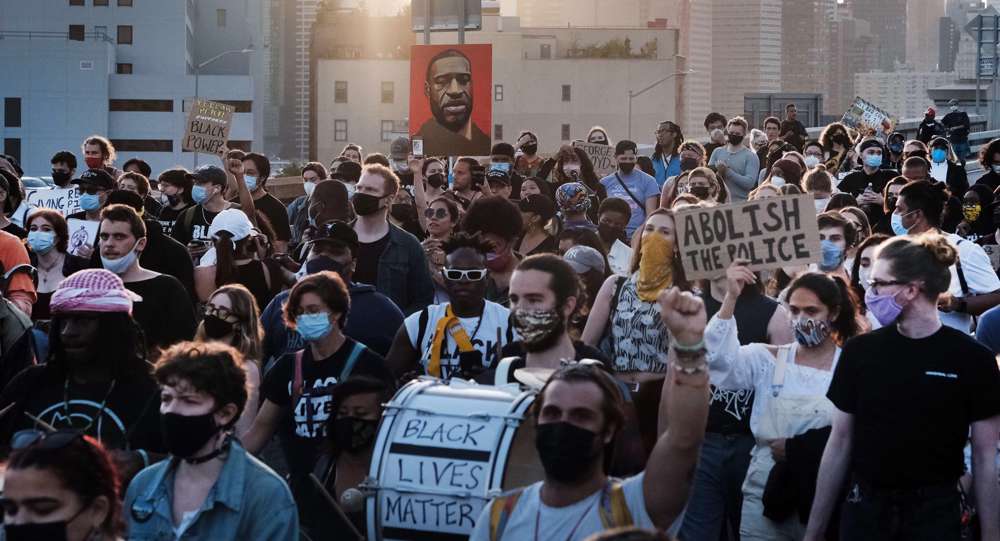George Floyd murder: Prosecutors seek 30-year sentence for former US killer cop
US prosecutors have sought a 30- years sentence for a white former police officer, convicted in last year's murder of African-American, George Floyd.
A judge ruled last month that former police officer Derek Chauvin, who was found guilty of killing Floyd, treated the detainee with "particular cruelty.”
Chauvin, abused his authority as a police officer when he restrained Floyd by kneeling on his neck for more than nine minutes and not rendering medical aid, even when it became clear Floyd was in medical distress, said judge Peter Cahill.
The former police officer treated Floyd with "particular cruelty" because of the "prolonged nature of the asphyxiation,” he said.
The new details paved the way for the judge to sentence Chauvin to more than 15 years in prison.
In a sentencing brief filed Wednesday, prosecutors said that “the Court should take the next step and hold that each of these aggravating factors" is grounds for imposing a sentence two times the upper end of the presumptive sentencing range.
Prosecutors in Minnesota called actions by Chauvin an "egregious abuse" of his position, saying, “Defendant's conduct was also particularly cruel.”
Lawyers for Chauvin, however, asked in a separate brief for a downward departure from sentencing guidelines or a sentence of probation with time served.
Attorney Eric Nelson said “Chauvin asks the Court to look beyond its findings, to his background, his lack of criminal history, his amenability to probation, to the unusual facts of this case, and to his being a product of a “broken' system.”
Nelson wrote Chauvin "was unaware that he was even committing a crime. In fact, in his mind, he was simply performing his lawful duty in assisting other officers in the arrest of George Floyd.”
"Chauvin's offense is best described as an error made in good faith... not intentional commission of an illegal act," the lawyer said.
He also claimed that the former officer "has been preliminarily diagnosed with heart damage" and that he might die at a younger age.
Chauvin was convicted of second-degree murder, third-degree murder and second-degree manslaughter.
As a first-time offender, HE had potentially faced 12 and a half years in prison on that count under the guidelines, but the aggravating circumstances could prolong his jail term for more than 30 years, according to Minnesota sentencing guidelines.
The most serious charge that Chauvin was convicted of — second-degree murder — carries a maximum sentence of 40 years in prison.
Chauvin, who will be sentenced at a hearing on June 25, also faces separate federal civil rights charges in connection with Floyd's death.
Floyd’s death in May last year, sparked angry protest across the US and across the world.
The protests evolved into a nationwide battle between progressives and far-right groups, after former president Donald Trump took a hard-line stance against the anti-racism protests.

Thousands condemn Trump’s policies in rallies across US

Advocacy group files war crimes case in US against Israeli soldier

Harvard-Trump dispute deepens as US president threatens to remove tax exemption
Over 100 rabbis, cantors slam Trump for pro-Palestine campus crackdown
Nearly 30 Palestinians killed in fresh Israeli strikes on Gaza
VIDEO | Press TV's news headlines
FBI, local police raid homes of pro-Palestine activists in Michigan
Trump ratings low amid US economic turmoil
VIDEO | Trump tariffs: A wrecking ball!
Israel deprives Gazans of basic needs for ‘survival’: UN
South Africa has no choice but to support resistance against Israel's genocide in Gaza












 This makes it easy to access the Press TV website
This makes it easy to access the Press TV website